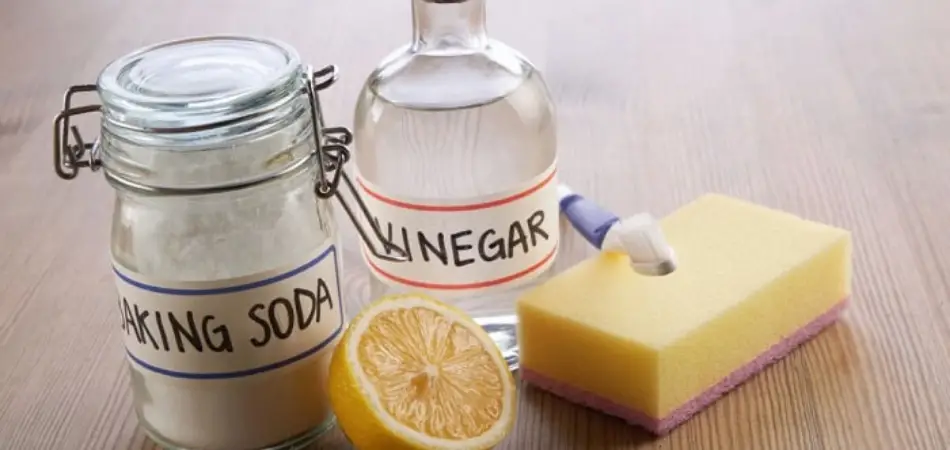Vinegar is a common household solvent for many cleaning and disinfecting activities. It is a natural cleaner made by adding oxygen to grain alcohol to form the acetic acid. For many homes cleaning processes, the instruction is often to mix a part of vinegar with water till the mixture is about 5 percent acidic. However, does vinegar cause metal to rust?
Yes, Vinegar can cause the metal to rust. It is a highly corrosive substance and causes the oxidation of the metal by stripping the layer of metals such as iron, zinc, etc.
Of course, Vinegar is a popular cleaning product with many uses. However, vinegar can cause the metal to rust. Vinegar’s acidity also makes it useful for a wide range of not-so-household uses.
In addition, Acetic acid is an ingredient in vinegar. In high concentrations, it can cause metals to rust faster. It can break down the protective oxide layer on metal surfaces. This allows oxygen to combine with the metal, creating rust.
Contents
Does Vinegar Corrode Metals?
Yes, vinegar can rust or corrode metals especially at very high temperatures. Vinegar contains a diluted form of acetic acid and acids naturally dissolve metals. This process occurs when the positive hydrogen ion found in the acid reacts with the negative ions or electrons of the metals. We would not see all of this happen with our eyes, but the physical representation of what is seen is a brown coloration on the metal.
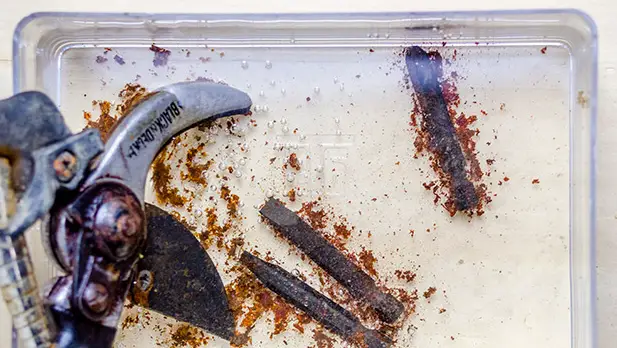
Vinegar is a conductor of electricity creating a medium for easy electron movement and metal depletion. Although vinegar is a weak acid, on exposure to more oxygen or when the metal is left to air dry, the rust becomes more evident.
Does Vinegar React with Stainless Steel?
Stainless steel is a very resistant metal to corrosion except when in contact with very strong acids. Vinegar contains acetic acid which is a weak acid. Although not strong enough to initiate rusting when the item is cleaned, it could still cause damages to the stainless steel item.
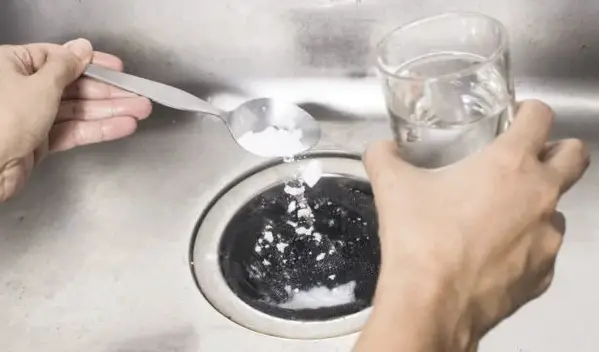
For cleaning stainless steel at home, many people favor the use of vinegar instead of steel brushes or sponges that can eat away the protective coating of the metal. However, to maintain the shiny appearance of the stainless item, do not let it soak in vinegar for too long. Also, remember to correctly rinse the item to remove any vinegar residue left.
Does Vinegar React with Aluminum Foil?
If vinegar is left on aluminum for a long time, it would rust. The aluminum acetate used in making aluminum foils is highly reactive with acidic vinegar. Although this reaction is not easily noticeable, when vinegar is left in the foil for a long time, the brown rust marks would become visible.
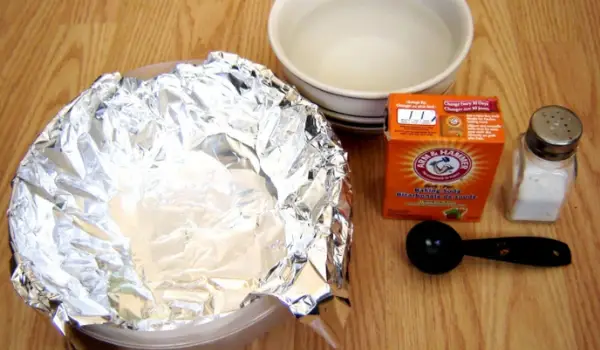
For aluminum cookware at home, vinegar is the top choice for removing oxidation but care should be taken when cleaning at very high temperatures. As much as possible avoid over-soaking aluminum pieces in vinegar for so long and ensure thorough rinsing after washing them in vinegar.
Will Vinegar Stop Metal from Rusting?
It might seem contradictory that vinegar would cause rust and also be used to remove rust from metals. However, because of its acidic properties, it can also be used to remove rust from an already rusty piece. For removing rust, many types of vinegar can be used such as white vinegar and apple cider vinegar.
How to Remove Rust Using Vinegar?
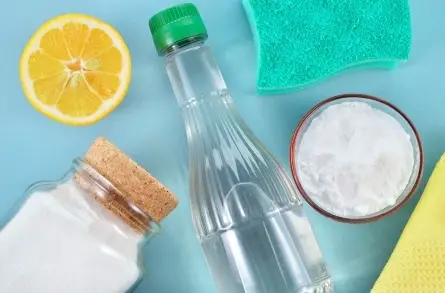
- Soak the rusted object in vinegar for at least 30 minutes to allow the acid to dissolve the rust covering the metal. The timing might vary depending on the extent of the rust on the item.
- Take out the metal object and scrub with a steel brush or sponge to remove the rust marks.
- Rinse it thoroughly with water and air dry it.
- Depending on the type of metal, it is advisable to add a protective layer such as paint.
How Long Does It Take Vinegar to Rust Metal?
By soaking the metal in vinegar, it is possible to remove rust from the metal. However, if the metal is soaked for a long period, there would be visible rust marks as the vinegar dissolves part of the metal leading to the rusting.
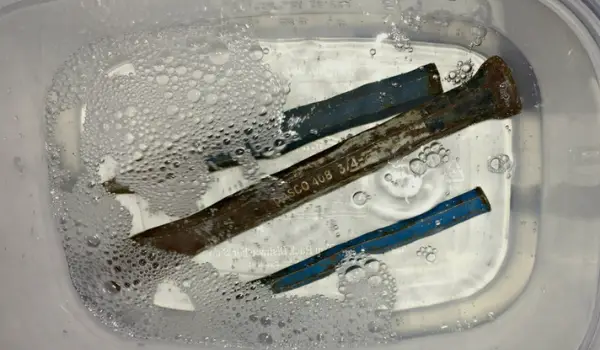
Also once the metal has been removed from the vinegar, it should be thoroughly rinsed to remove leftover vinegar so the rusting does not continue. Leaving the metal without rinsing for up to 5 minutes is enough for the vinegar to rust the metal.
Why Does Vinegar Cause less Rust than Water?
Both water and vinegar corrode metal. But because vinegar readily attacks rust and iron, it might be observed that the metal in vinegar would rust slower than that in water. A metal left in vinegar would be dissolved along with its oxides in the acid. In the water, however, the metal reacts with oxygen to form brown hydroxides on the surface of the metal.
Oxygen is a major cause of corrosion and rust. Although both water and the acetic acid in the vinegar contain dissolved oxygen that initiates the rusting process, there is the probability that the dissolved oxygen in tap water is much more than that in vinegar.
Conclusion
Vinegar is used by most homes as a cleaning agent because it attacks dirt quite readily. Notwithstanding these interesting properties, vinegar is acidic and should not be used on some items. You should also be careful of using vinegar on metals at very high temperatures as these can also facilitate rusting.
Like water, vinegar also contains oxygen that triggers rust in metals. Despite being a common home cleaner, it is important to be careful when cleaning metals with vinegar. For cleaning metal surfaces or items, be careful not to soak the pieces in the vinegar for too long.

